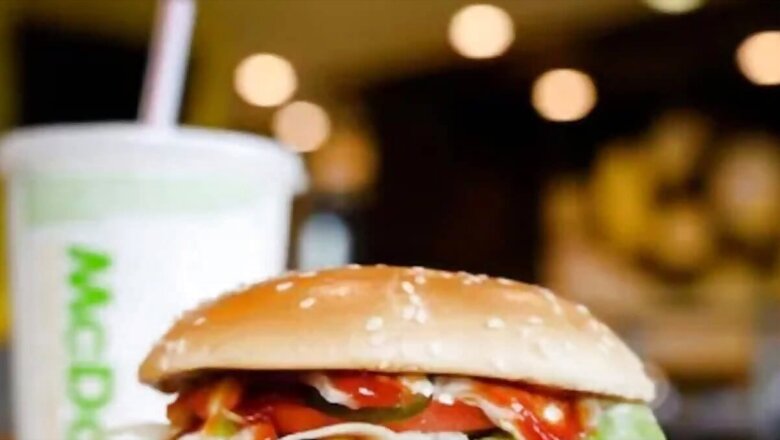
views
A McDonald’s Quarter Pounder with cheese bought in 1995 has defied the odds, remaining perfectly preserved nearly three decades later. Australian friends Casey Dean and Eduards Nits, who bought the burger as teenagers in Adelaide, have kept it as a memento, even calling it their “mate”. The Quarter Pounder dates back to the mid-90s, according to the waxy paper and cardboard packaging as evidence.
Despite expectations of decay, the burger shows no signs of mould or odours. However, it has shrunk a bit. Over the years, it has been stored in a cardboard and timber box, spending a significant portion of its life in a stuffy shed in Adelaide where temperatures often exceed 30 degree Celsius during the summer.
Casey Dean fondly remembers the day they bought heaps of McDonald’s food as teenagers, sparking the idea to keep the Quarter Pounder forever. Today, their experiment has captured worldwide attention.
Dean also recalled the time rats gnawed through heaps of clothes to reach it. He told AFP that the rats had “eaten through the plastic bag, heaps of clothes, got into the box,” but they had “left the burger.” “Our mate was safe,” they said.
Calling it the “Senior Burger” now, the men have gone to great lengths to celebrate their enduring fast-food “mate”. They have given the burger its own social media profile and even composed a song in its honour. They proudly claim that their Quarter Pounder is the oldest known McDonald’s burger globally, surpassing the fame of a well-known decade-old cheeseburger exhibited in Iceland. This Icelandic burger is showcased in a glass case and is streamed live online, attracting thousands of curious viewers.
Dean’s attachment to the burger is so strong that he won’t part with his beloved “mate,” rejecting numerous offers since the burger gained fame in 2015.
How is the burger still intact?
McDonald’s says their burgers last long because they are stored in a dry place that stops mould and bacteria. They say homemade food can stay good too if it dries out. “Food prepared at home that is left to dehydrate could see similar results,” they said.
According to Tim Crowe, an Australian nutrition scientist and practising dietitian, the high salt content in McDonald’s burgers plays a significant role in their resistance to decay. He explains that it’s not about any harmful ingredients in McDonald’s food, but rather the combination of low moisture and high salt levels that contribute to their preservation.



















Comments
0 comment